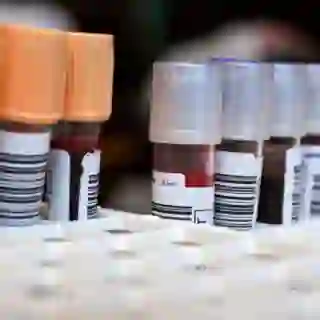The Infectious Nature of Hep C

Hepatitis C is a virus that is passed from one person to another through blood. Hep C can live outside of the body for weeks, so to prevent the virus it’s critical to be aware of the most common ways you could be exposed to items contaminated with infected blood. (All images credit: Thinkstock)

Through the skin
Your skin usually protects you from hep C. If you are splashed with blood or you touch blood, and your skin is healthy and intact, there is very low risk for infection. However, if you have tears, cuts, sores, infections, or punctures to your skin, hep C could enter your blood stream and cause an infection.

Contact with blood
Hep C is very infectious: there are usually many copies of the virus found in the blood of an infected person. Therefore, even a tiny bit of blood that is not visible to the human eye could cause an infection if it gains entrance to the blood stream. Once the virus is in the blood, it begins to replicate quickly, and also begins to cause stress to the liver.

The role of drugs in hep C
The most common way hep C is spread, is sharing drug use equipment, particularly injection drug use equipment. Sharing injection equipment is high risk, because if there is infected blood on a needle or in a syringe, it has a direct passage into the blood stream. In addition, the majority of people who inject drugs have hep C, so it’s likely for blood on the equipment to be infected. To avoid spreading hep C, never share any injection equipment for any reason.

A little hep C history
Before 1992 in the US, it was common to get hep C from a blood transfusion. Since then the blood supply has been well screened and getting a blood transfusion is no longer a risk. Lapses in infection control in health care, such as reuse of medical equipment or poor infection control practices in dialysis centers sometimes cause outbreaks. Reuse or sharing of home medical equipment such as finger prick blood tests or insulin syringes can spread hep C.

Household items and hep C
Hep C can be spread by sharing personal care equipment such as razors, clippers, toothbrushes, or washcloths that may have blood on them. It’s best to use only your own personal care equipment.

Sex and hep C
Hep C is not considered a sexually transmitted disease, however if there is blood or tearing of tissues during sex, there is a risk for infection.

How hep C cannot be spread
Hep C is not spread through casual contact such as shaking hands, hugging, kissing on the lips, sharing food, cups, or coughing or sneezing.

Prevention
Hep C can damage the liver, cause cirrhosis and liver cancer – so it’s important to prevent exposure to blood. If you have hep C, it’s important to take precautions so you don’t pass it on to others.